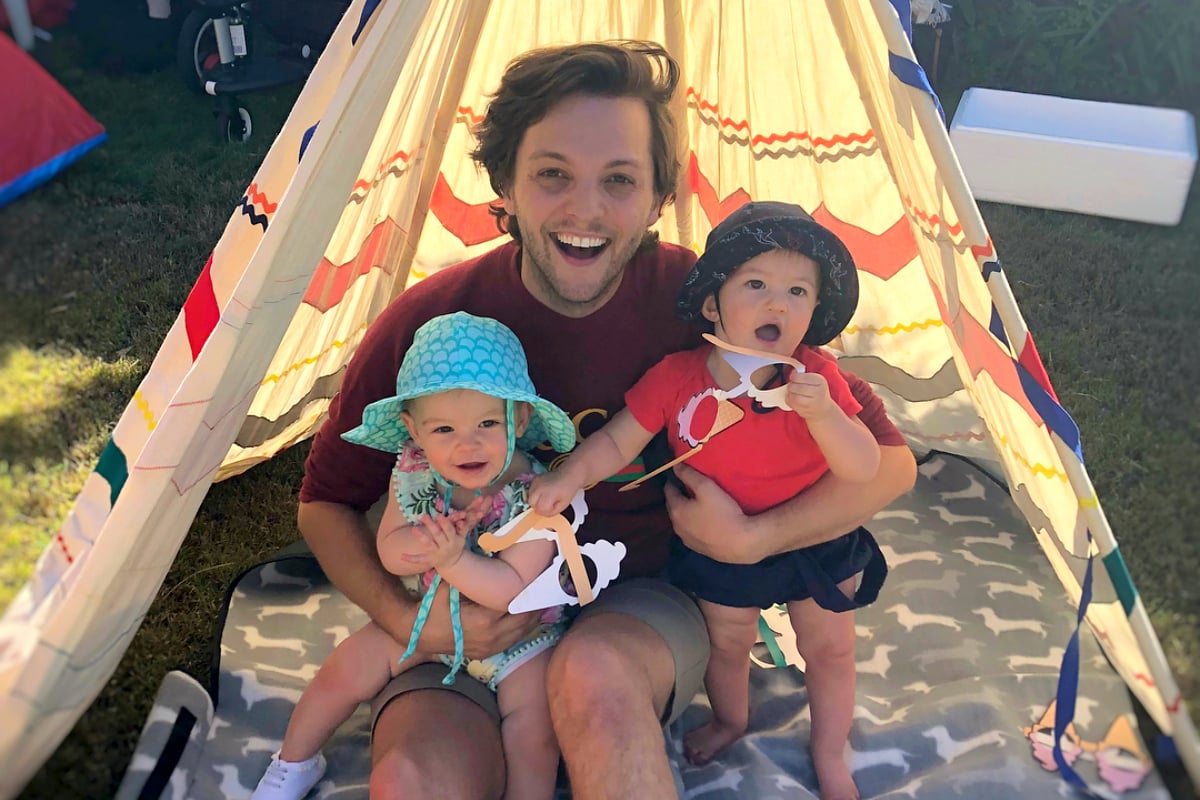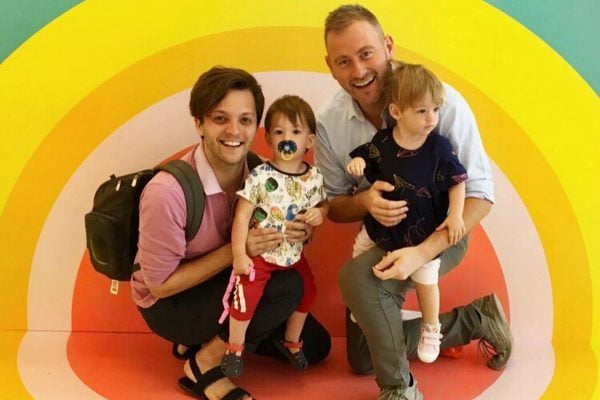
I’ve always wanted to be a member of a Mothers’ Group. Something about the laughter and cheeky eye rolls from a group of sleep-deprived women has made me desperate for an invitation.
There’s just one teeny, tiny, itty-bitty thing holding me back from getting that membership card: I’m a dad.
In fact, I’m a dad in a same-sex relationship. So here I am, the primary caregiver in a motherless home, longing for acceptance from a group that simply won’t have me.

That’s why I’d like to formally request that all Mothers’ Groups in Australia change themselves to Parenting Groups. Here’s why:

Top Comments
I wonder did you approach any mothers groups at all, or did you just assume you wouldn't be welcome because you are a Male?
I ask this because my dad was a stay at home dad in the 1970s while my mother worked and he joined mothers group and we still have family friends that he met at mothers group to this day. He also never had an issue with it being called mothers group.
I think it's interesting that you don't seem aware that some women don't want to be discussing their most private issues in front of men. Instead of trying to change the name of a group, maybe you should read up on the issue and ask women friends why they may have an issue with that. Not everyone will have an issue with that of course, my mother's group had dads in it too. Which was fine. If they want to hear about blood clots post birth then more power to them. I personally thought it was good that dads were taking an active role, but I understand that some women feel uncomfortable and that's fine too.
People who disagree will say, “but women won’t be able to talk about their vaginas” or “women won’t feel comfortable venting about their husbands”. But I call bullsh*t. If the men (or women) can’t handle the honesty that occurs in Parenting Groups, then they don’t need to return the following week.
Right but this completely ignores the fact that women don't avoid talking about their vaginas around men because they think the men won't be able to handle it. They don't talk about their vaginas around men because they don't feel comfortable discussing it with men around. Ditto venting about their husbands.
It reminds me of people who have told me I shouldn't feel embarrassed when undressing in medical situations because doctors and nurses "see it all the time". I'm positive they do but I don't undress in front of strangers all the time. It's about my comfort, not theirs.
Spot on. The author spectacularly fails to understand any perspective apart from his own. It's great that he's woke enough to be comfortable hearing conversations about vaginas, but that is not and was never the real point.